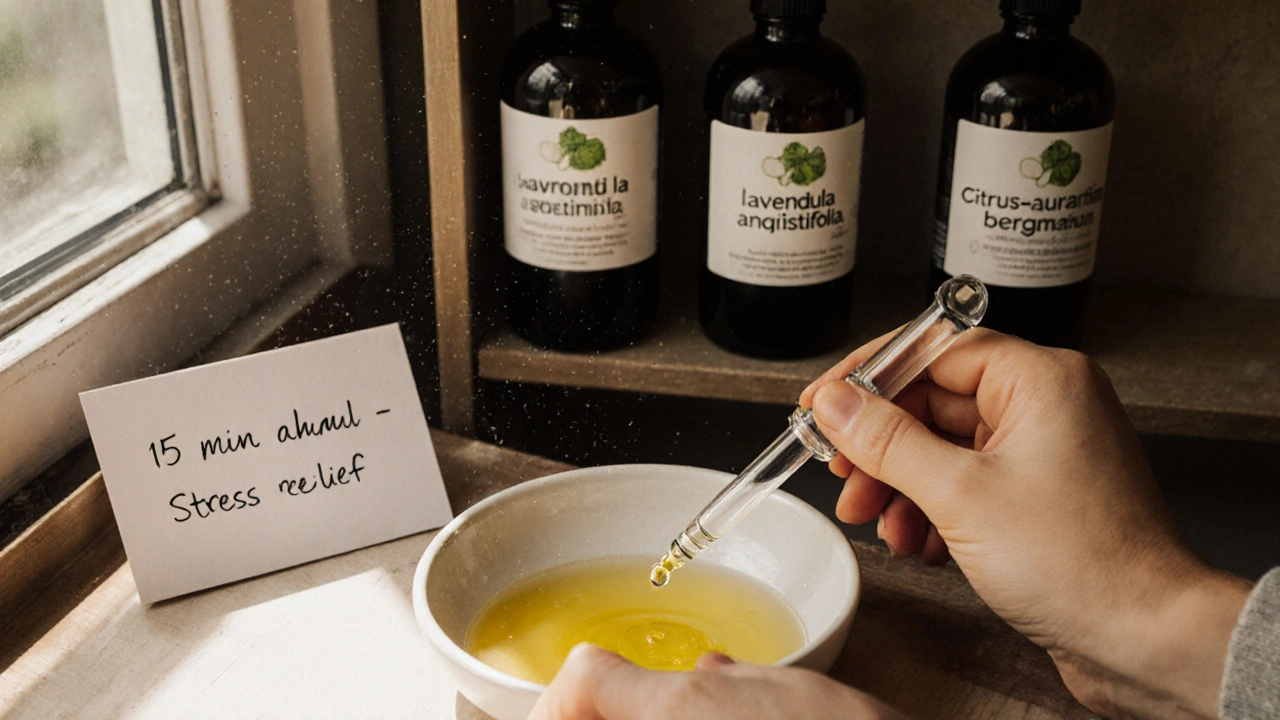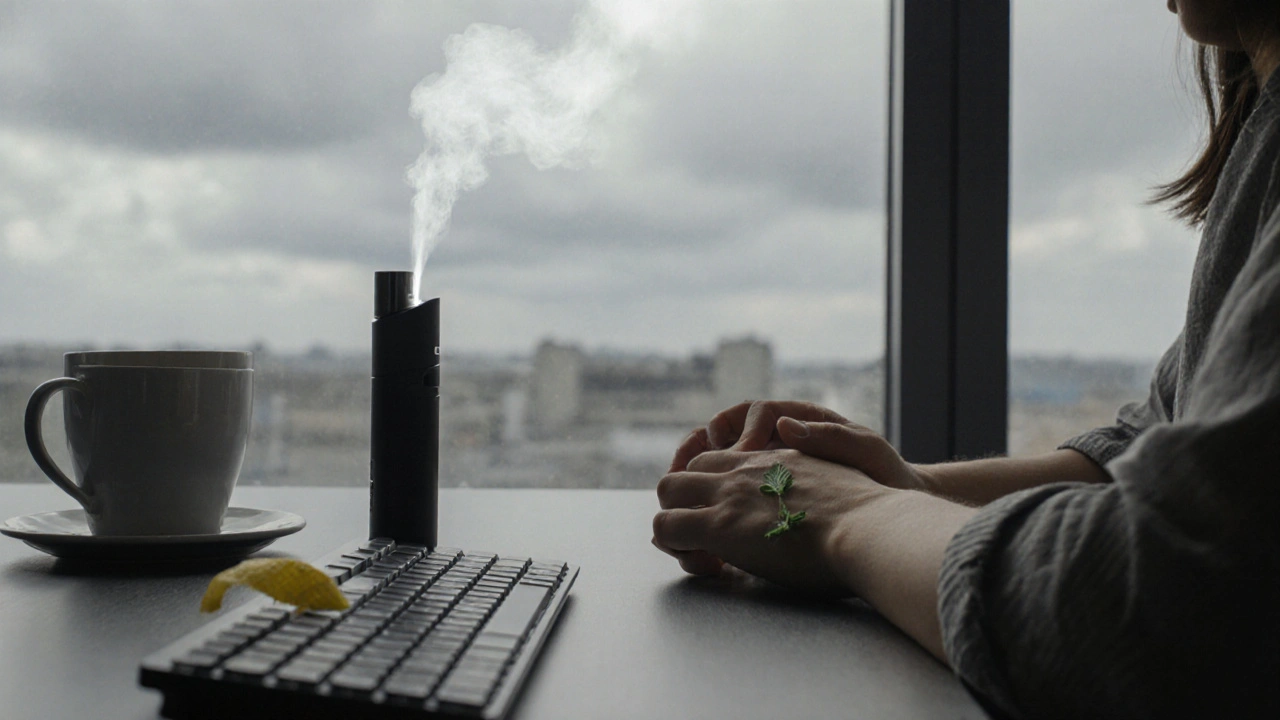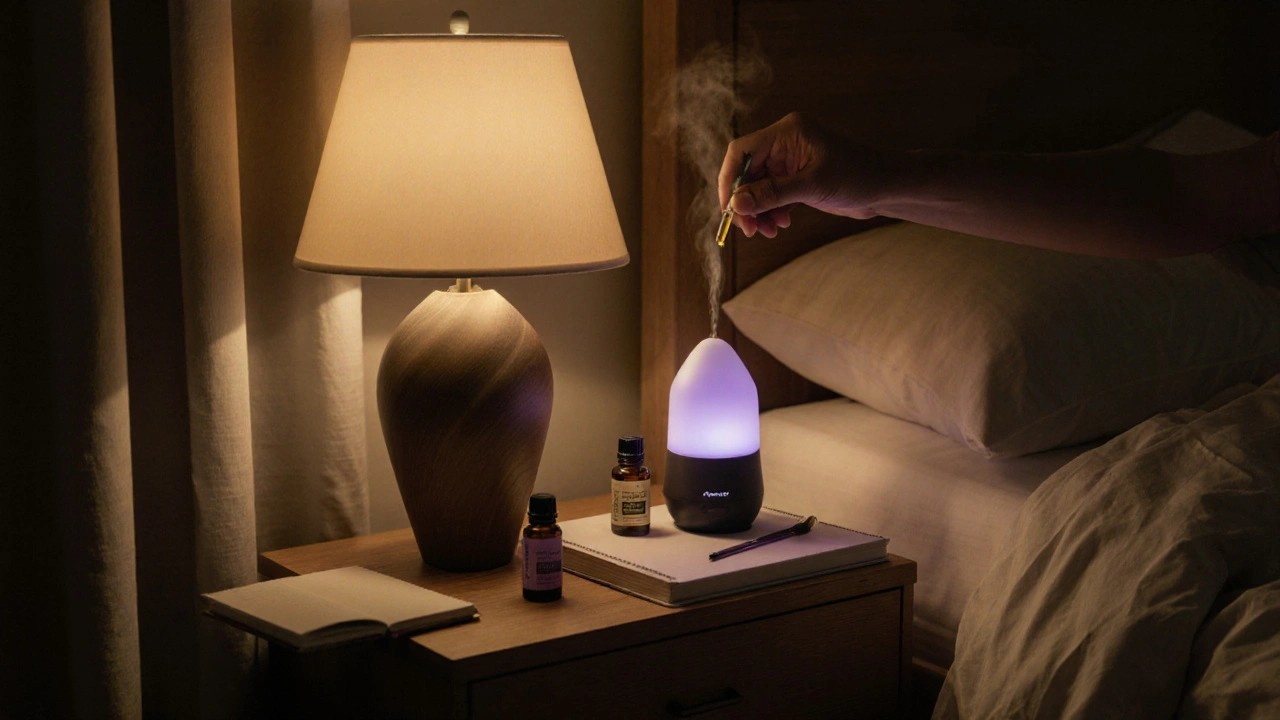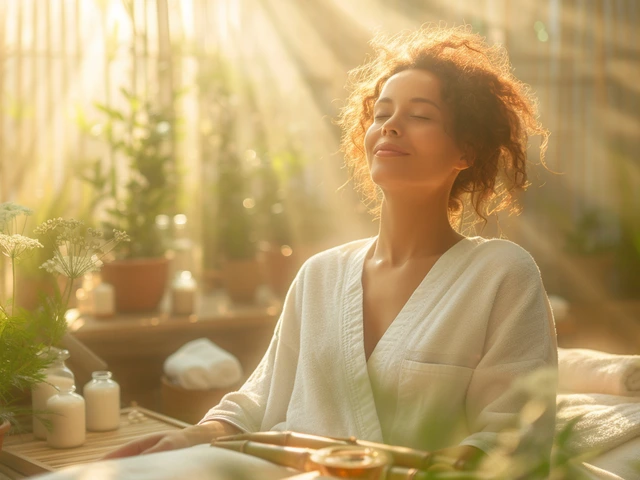Essential Oil Selector
Choose Your Goal
Ever walked into a room and instantly felt calmer, even though nothing seemed different? That’s not magic-it’s aromatherapy. People have used plant scents to influence mood, energy, and well-being for thousands of years. Today, it’s not just for spas and yoga studios. You can use it right in your kitchen, bedroom, or even your car. But using essential oils blindly won’t give you results. It’s not just about lighting a candle and calling it a day. Mastering aromatherapy means knowing which oils work for what, how to use them safely, and how to make them fit into your real life-not just your Instagram feed.
What Exactly Are Essential Oils?
Essential oils aren’t fragrances. They’re concentrated liquids pulled from plants-flowers, leaves, peels, roots, or bark-using steam distillation or cold pressing. One drop of peppermint oil comes from about 28 pounds of fresh mint leaves. That’s why they’re so powerful. Not all scents are created equal. Lavender oil from France has a different chemical profile than lavender from Bulgaria. The soil, climate, and harvest time change everything.
These oils contain compounds like linalool in lavender, limonene in citrus, or eucalyptol in eucalyptus. These aren’t just smells-they interact with your nervous system. Studies show linalool can lower cortisol levels, the stress hormone. That’s why lavender oil isn’t just "nice to smell"-it’s a documented tool for reducing anxiety. The same goes for bergamot. A 2015 study in the Journal of Alternative and Complementary Medicine found that inhaling bergamot for 15 minutes lowered heart rate and blood pressure in stressed adults.
How to Choose the Right Oils for Your Needs
Not every oil works for every person. Your goal matters more than trends. Here’s a simple guide based on what you want to achieve:
- For stress and sleep: Lavender, chamomile, clary sage, vetiver
- For focus and energy: Rosemary, peppermint, lemon, frankincense
- For congestion and breathing: Eucalyptus, tea tree, pine, ravintsara
- For mood lift: Orange, bergamot, ylang-ylang, grapefruit
- For muscle soreness: Ginger, black pepper, marjoram, wintergreen
Don’t just buy what’s on sale. Look for 100% pure, undiluted oils. Check the label. If it says "fragrance oil" or "perfume oil," put it back. Those are synthetic. Real essential oils list the Latin name-like Lavandula angustifolia-not just "lavender oil." Brands like doTERRA, Young Living, and Plant Therapy are common, but smaller, local distillers often offer better quality and transparency. Ask where the plants were grown and how they were extracted.
Safe Ways to Use Essential Oils at Home
There are three main ways to use essential oils: inhalation, topical application, and diffusion. Each has rules.
Inhalation is the easiest and safest. Just open the bottle and take a few deep breaths. Or put one drop on a tissue and inhale. For stronger effects, use a personal inhaler-a small tube you carry in your pocket. Add 5-10 drops to a cotton wick inside. Perfect for work, travel, or panic moments.
Diffusion means using an ultrasonic diffuser. Fill it with water, add 3-8 drops of oil, and turn it on. Don’t run it all day. Ten to fifteen minutes every few hours is enough. Overuse can irritate your lungs or trigger headaches, especially in kids or pets. Never leave a diffuser running in a baby’s room. Cats are especially sensitive to oils like tea tree and citrus-they can’t metabolize them the way humans can.
Topical use requires caution. Never put neat oil on your skin. Always dilute. For adults, mix 1-2 drops of essential oil with a teaspoon of carrier oil-like jojoba, coconut, or sweet almond. Test first. Put a drop of the mix on your inner wrist. Wait 24 hours. If it stings, turns red, or itches, don’t use it. Some oils, like cinnamon or oregano, are too strong for skin even when diluted. Avoid applying oils near eyes, ears, or broken skin. Pregnant women should skip rosemary, clary sage, and juniper berry unless approved by a doctor.

Building a Simple Aromatherapy Routine
You don’t need a full spa setup. Start small. Pick one goal: better sleep, less stress, or more focus. Then build a 5-minute ritual around it.
For better sleep: Ten minutes before bed, add 3 drops of lavender oil to your diffuser. While it runs, dim the lights and stretch for two minutes. Then, mix 2 drops of lavender with 1 teaspoon of jojoba oil and rub it on your temples and the back of your neck. Don’t wash it off. Let it work while you sleep.
For morning focus: Add 2 drops of rosemary and 1 drop of lemon to your diffuser while you make coffee. Breathe deeply three times. Then, roll a drop of peppermint mixed with carrier oil on your wrists. Rub them together and inhale. This isn’t just a vibe-it’s a sensory cue your brain learns to associate with alertness.
For afternoon slump: Keep a personal inhaler in your desk drawer. When you feel foggy, take five slow breaths through it. No sugar, no caffeine-just scent. Many office workers report this works better than a second cup of coffee.
Common Mistakes to Avoid
People mess up aromatherapy in predictable ways.
- Using too much: More isn’t better. One drop of eucalyptus is enough for a whole room. Overuse causes headaches, nausea, or even respiratory irritation.
- Assuming all oils are safe: Some oils are phototoxic. Citrus oils like bergamot, lemon, and lime can cause burns if you go outside after applying them to your skin. Use them only at night or wash them off before sun exposure.
- Using oils on kids or pets without research: Children under 6 should avoid strong oils like peppermint and eucalyptus. Dogs and cats process oils differently. Tea tree oil can cause tremors in dogs. Always check with a vet before using oils around pets.
- Storing oils wrong: Light and heat break down oils. Keep them in dark glass bottles, away from windows. A cool cabinet is better than your bathroom. Most oils last 1-3 years. Citrus oils go bad faster-6 to 12 months. If it smells rancid or like old paint, toss it.

When Aromatherapy Isn’t Enough
Aromatherapy is a tool, not a cure. It won’t replace medical treatment for anxiety disorders, chronic pain, or sleep apnea. But it can support them. If you’re on medication for depression or insomnia, talk to your doctor before adding oils. Some oils interact with drugs. For example, grapefruit oil can interfere with cholesterol medications. Lavender might enhance the effect of sedatives.
Also, don’t expect instant miracles. Aromatherapy works best with consistency. Like meditation or exercise, the benefits build over time. One night of lavender oil won’t fix insomnia. But doing it every night for two weeks? That’s when people start noticing real change.
Keep a journal. Note what oil you used, how you used it, and how you felt afterward. After a month, you’ll see patterns. Maybe peppermint helps your focus but makes your head pound. Maybe bergamot lifts your mood but triggers a sneeze. That’s data. That’s mastery.
Final Thought: It’s About Awareness, Not Just Scents
Aromatherapy isn’t about buying the fanciest diffuser or the most expensive bottle. It’s about tuning into your senses. The smell of rosemary isn’t just a scent-it’s a signal to your brain that it’s time to concentrate. The smell of lavender isn’t just calming-it’s a cue to let go. When you use essential oils intentionally, you’re not just breathing in molecules. You’re training your nervous system to respond differently to stress, fatigue, and chaos.
Start with one oil. One routine. One week. Notice what changes. Then, slowly build from there. You don’t need to be an expert. You just need to pay attention.
Can I use essential oils directly on my skin?
No, never apply undiluted essential oils directly to your skin. They’re too concentrated and can cause burns, irritation, or allergic reactions. Always mix them with a carrier oil like jojoba, coconut, or sweet almond oil. Use 1-2 drops of essential oil per teaspoon of carrier oil for adults. Test on a small patch of skin first.
Are essential oils safe for pets?
Many essential oils are toxic to pets, especially cats and dogs. Tea tree, citrus, peppermint, and eucalyptus oils can cause vomiting, tremors, or liver damage in animals. Never diffuse oils around pets without consulting a veterinarian. If you must use them, keep pets out of the room and ensure proper ventilation. Store oils out of reach.
How long do essential oils last?
Most essential oils last 1-3 years when stored properly in dark glass bottles, away from heat and sunlight. Citrus oils like lemon and bergamot degrade faster-usually within 6 to 12 months. If the oil smells rancid, stale, or different from when you bought it, it’s time to replace it. Expired oils lose potency and can irritate the skin.
Can aromatherapy help with anxiety?
Yes, research shows certain essential oils like lavender, bergamot, and frankincense can reduce symptoms of anxiety. A 2017 study in the Journal of Clinical Psychology found that inhaling lavender oil for 10 minutes daily reduced anxiety levels in participants with mild to moderate anxiety. It’s not a replacement for therapy or medication, but it can be a helpful, non-pharmaceutical tool when used consistently.
What’s the best way to start using aromatherapy?
Start with one oil-lavender is the safest and most versatile. Use it in a diffuser for 10 minutes before bed or add one drop to your pillow. Pay attention to how you feel. After a week, try a second oil for a different goal, like rosemary for focus. Keep a simple journal: oil used, method, time of day, and how you felt. This helps you learn what works for you, not just what’s popular online.




